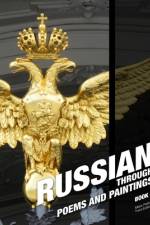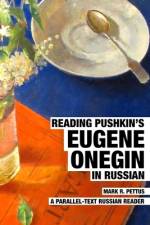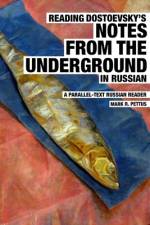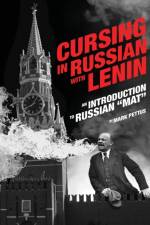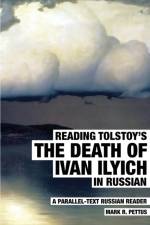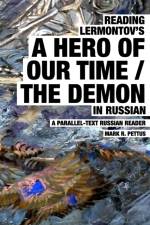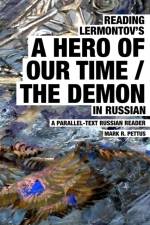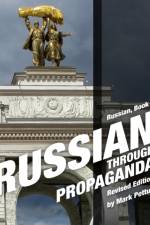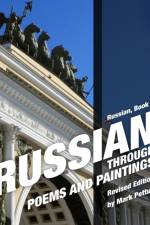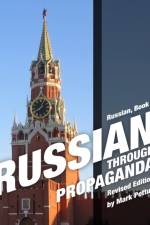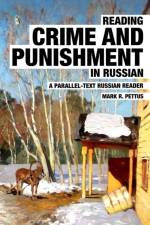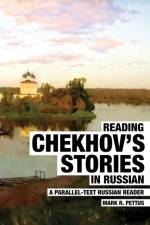- Russian Through Poems and Paintings
av Mark R Pettus
367
This volume (Book 4) completes the series that began with "Russian Through Propaganda" (Books 1 and 2 in the series), and continued with the first volume of "Russian Through Poems and Paintings" (Book 3 in the series). This series was designed for serious students looking for exhaustive coverage of Russian grammar and immersion in Russian culture - with particular emphasis on learning to enjoy Russian literature in the original, inasmuch as Russian literature is, for many, the chief motivation for learning Russian in the first place. By the end of this volume (Book 4 in the series), students will have every tool at their disposal for enjoying the Russian classics. This book features daily poems by the likes of Pushkin, Lermontov, Tyutchev, and may others, together with extensive vocabulary notes. It concludes with longer reading selections: highlights from Ivan Goncharov's novel Oblomov, and a fascinating narrative poem by Nikolai Nekrasov entitled Red-NosedFrost.Having covered most major grammar topics in the previous volumes (Books 1, 2, and 3), the present volume (Book 4) shifts its attention to Russian word formation, giving students an in-depth look at such topics as roots, prefixation, verb and adjective creation, foreign borrowings, noun suffixes, stress patterns, and more. In the process, we'll hone our ability to analyze a variety of Russian words - both to make sense of new words we encounter, and to consider the literal meaning of Russian words, not just their standard English translation. We'll group words into families - looking first at "verb families" (prefixed forms of a given base aspectual pair), and later at broader word families built from a common root (nouns, verbs, adjectives, etc.). We'll also look in depth at the suffixes Russian uses to adopt foreign vocabulary, thus greatly enhancing our ability to make sense of the countless borrowed words encountered in contemporary Russian. As in Book 3, examples of the grammar at hand are provided by Russian poems and paintings. Books 3 and 4 both focus on the Imperial era; but, in terms of poetry selections, whereas Book 3 focused heavily on "Golden Age" poets like Pushkin and Lermontov, Book 4 now pushes forward into the Silver Age and even the Soviet era, with more selections from poets like Mayakovsky, Tsvetaeva, Mandelshtam, Pasternak, and others. By the end of Book 4, students will have been exposed to most of the major names in Russian poetry, and to some of their most well-known poems.Remaining grammar topics include verbs of position, a review of imperfective derivation, and a survey of noun and number declension that includes more unusual forms we have yet to encounter. Declension of numbers is covered in full, along with special noun types. Some of these forms - the declined numbers in particular - may not be encountered on a daily basis, but it is very important to be aware of them, and, for students intent on mastering Russian, to learn them. With these units, the series completes its near-exhaustive coverage of both verb conjugation and noun and adjective declension.The book concludes with a chapter presenting useful vocabulary for talking about life (birth, death, and everything in between - love and marriage, friendship, travel, activities, culture, and more), and, finally, a chapter featuring two outstanding pieces of Russian literature: highlights from Goncharov's novel Oblomov (from a chapter known as "Oblomov's Dream"), and the entirety of Nikolai Nekrasov's long narrative poem "Red-Nosed Frost," which depicts the difficult life of a young peasant woman after her husband's death, with a stunning ending - magical, beautiful, yet deeply disturbing - that is not to be missed! About the author: Mark Pettus is a lecturer in Slavic Languages and Literatures at Princeton University, where he teaches Russian, Czech, Polish, Church Slavonic, and more.

